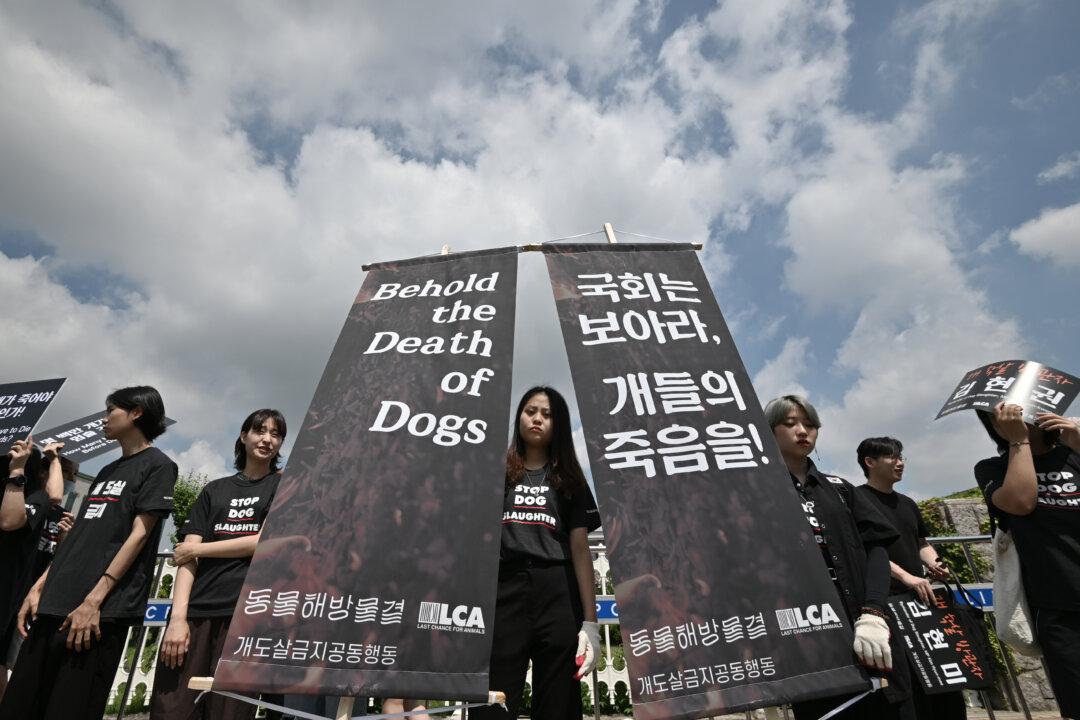South Korea’s president on Sept. 27 floated the idea of imposing a ban on eating dog meat, a traditional yet controversial practice decried by animal rights activists but defended by farmers who want to retain the right to raise dogs as livestock.
The remarks from South Korean President Moon Jae-in came after he was briefed by the country’s Prime Minister Kim Boo-kyum on efforts to improve the handling of abandoned animals and a mandatory registration system for dogs.





